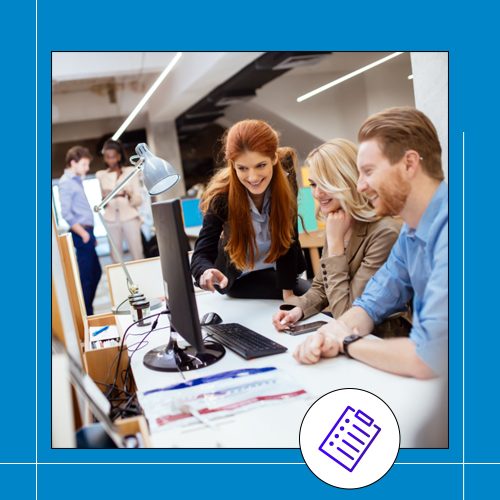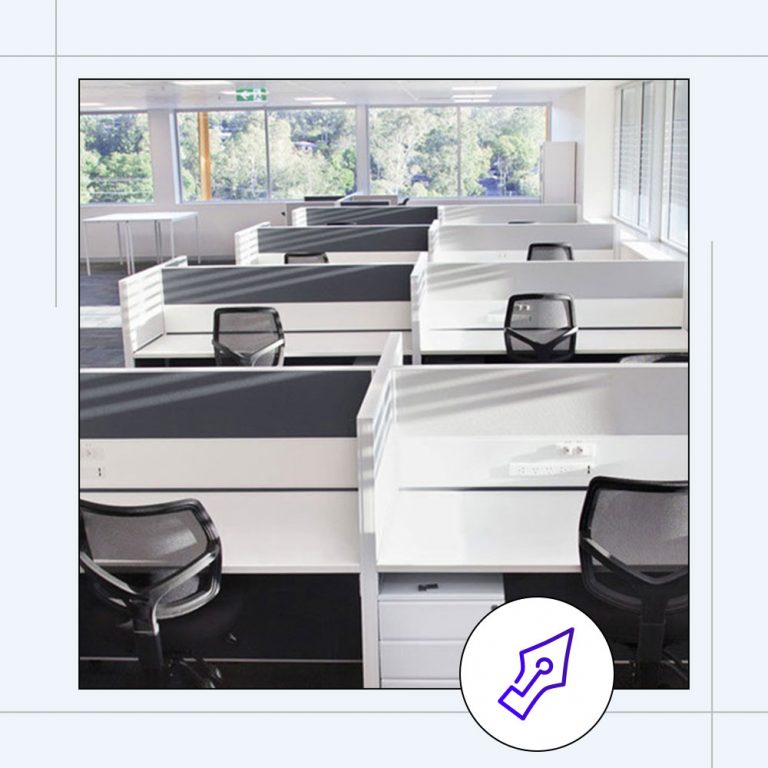Office design trends for 2023
Offices are functional by nature, but clever design can play a significant role in their productivity, creativity and culture. And it should. We spend a large part of our lives working, so it makes sense that our workplaces are enjoyable places to be.
Recent changes in how we work – particularly hybrid home-office models – are influencing office design like never before. Employees want the same comfort, flexibility, and connection with the natural environment that they have at home.
With these factors in mind, here are the top office design trends for 2023, that we think are worth paying attention to.
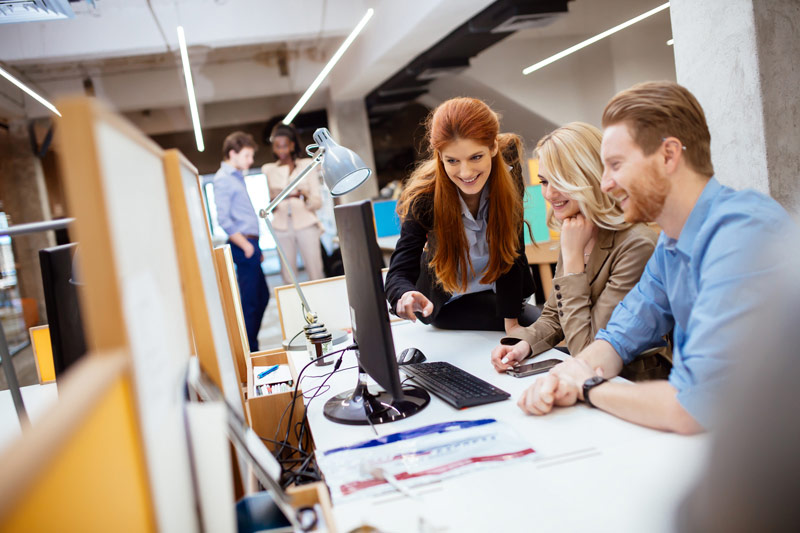
1. Sustainable products and practices
As energy prices rise and our awareness of our impact on climate change grows, we’re all evaluating how we can live more sustainably, and that includes how we design and use our offices.
A key decision-making factor for both employees and customers/clients when considering whether they engage with a company or not is their sustainable practices. Research in the US found that 65% of millennials will refuse a job offer if the company lacks sufficient corporate responsibility, while 61% of Australians state that a company’s sustainability practices influence their purchasing decisions to some extent.
Not surprisingly, a top trend for 2023 is incorporating greater environmental and social sustainability into office design in terms of energy and water use, furnishings and décor, and waste management.
This includes:
- High-quality products in classic designs that last longer and look good for longer, reducing the need for regular replacement and waste disposal.
- Products and buildings made from ethically sourced materials.
- Recycling and waste management systems.
- Use of green energy with reduced carbon footprint.
Everyday more and more businesses commit to a more sustainable future and going carbon neutral. Look out for businesses that have certification for their sustainable practices.

2. Wellbeing and comfort
More than just a key trend for 2023, office design that prioritises health and wellbeing is becoming best practice. Global standards and certifications, such as Fitwel by the Center for Active Design and the WELL certification from the International WELL Building Institute (ISBI) are leading the way to help employers, architects and interior designers create office spaces that maximise human health, company performance and environmental sustainability.
Furthermore, putting the effort into creating healthy spaces is good business:
research from the World Green Building Council has found ‘overwhelming evidence’ to support the fact that office design has a significant impact on people’s health, wellbeing and productivity.
Leaders at the forefront of this increasingly popular trend are incorporating wellbeing into office design by:
- Being mindful of space: Allowing sufficient space for movement breaks and walking around, together with spaces that allow for collaboration and quiet focus (more on that below).
- Choosing furniture carefully: Providing active furniture options such as height-adjustable sit-stand desks or pivot or wobble stools.
- Paying attention to ergonomics: Allowing employees to choose an ergonomic desk chair that suits their body. More on that here.
- Improving to air quality: This can be achieved by using monitors, air filtration technology and plants.
- Using biophilic design: this is the practice of connecting people and our built environment with the natural world. We’ve covered it in more depth here.
- Reducing noise distractions: audio buffering panels for ceilings or walls, or AudioArt is a great way to do this while adding to the design scheme (see BFX’s range of noise-reduction products for inspiration).
- Encouraging personalisation: Wellbeing isn’t just about comfort – being able to contribute to the décor, choose artwork or even bring in flowers can give employees a great sense of wellbeing and happiness.
- Creating eye-friendly lighting schemes: Smart employers are designing offices with as much natural light as much as possible to encourage focus, improve energy, boost mood with a healthy dose of vitamin D, and it can also save you money on energy bills and improve your productivity at the same time.
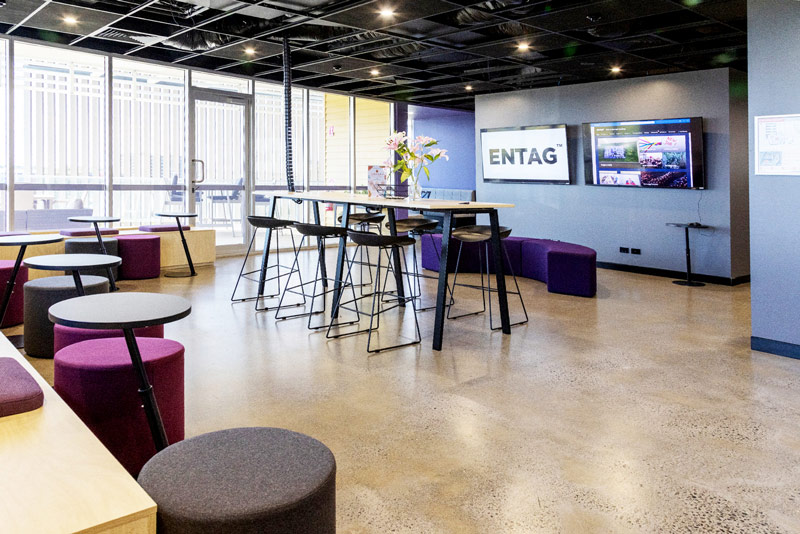
3. Flexibility and variety
Offices are no longer about sitting at a desk in a cubicle all day. We need to be able to collaborate with colleagues, move to a new environment for inspiration, and host fluctuating numbers of staff.
Fortunately, there is a growing trend for offering flexible furniture and a variety of working spaces which is proving to be good for our bodies (we all know sitting in one position all day is bad for us!), our productivity and creativity.
This trend utilises:
- A combination of open-plan seating with individual workstations and/or long tables for communal working, booths for small meetings and individual pods for quiet focused work.
- Social areas that extend the traditional office kitchen into a casual meeting space with lounges and coffee tables.
- Flexible furniture that can be re-configured to suit small and large meetings, while being conscious of the need to include other remote workers via video conferences.
The challenge for designers and employers is to create a sense of connection throughout the space, even when furniture configurations are changing and there is more open space.
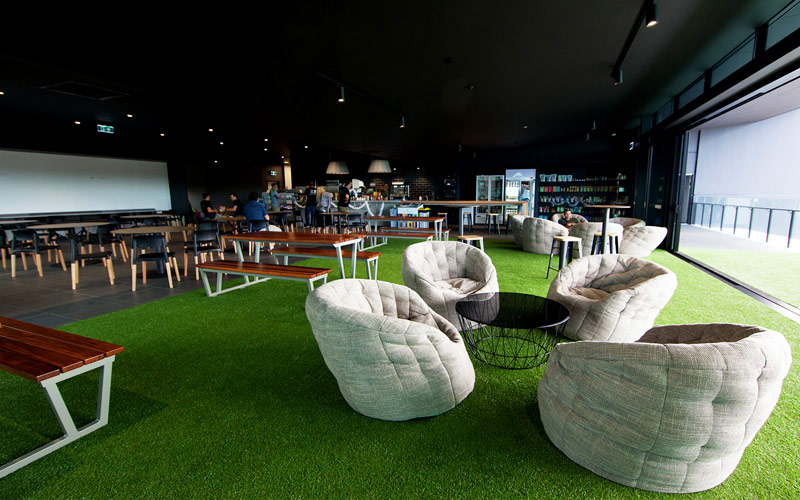
4. Technology and connectivity
Designers are being inspired to create functional, engaging and connected office spaces using furniture that blends modern style and comfort with seamlessly integrated technology.
Technology is being incorporated into furniture in various ways:
- Power modules with traditional and USB charging outlets can be built into workstations, coffee tables, meeting tables and boardroom tables
- Wireless charging pads, LED lighting and Bluetooth speakers can be added to booths and tables.
- Electronic height adjustable desks allow users to alternate between sitting and standing positions.
- Monitors can be built into meeting tables and partitions to facilitate collaboration.
- Cables and soft wiring can be concealed with channeling underneath desks, tables and even within soft furniture like sofas and padded work booths.
We’ve talked about this trend in depth in our recent article: Creating Engaging Workspaces with Technology-First Furniture.
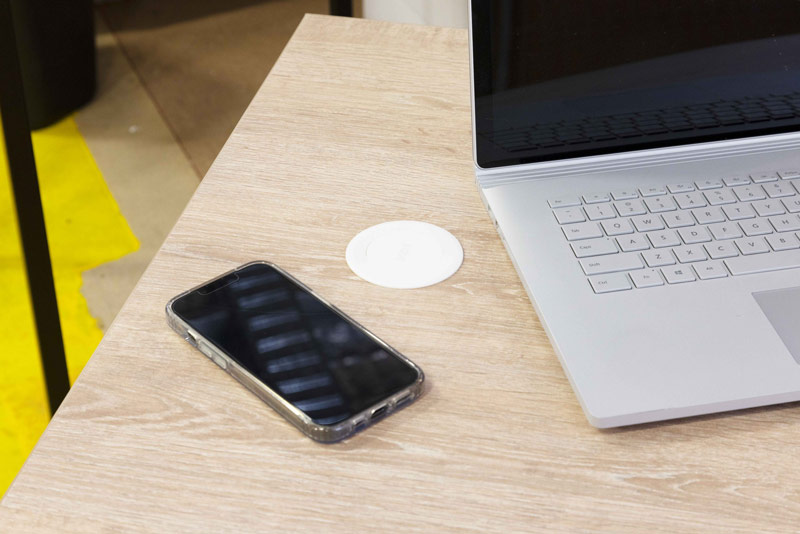
5. Muted, earthy colour palettes
Various studies have demonstrated that colour can have a significant impact on our emotions and energy levels at work.
This year’s colour trends, as predicted by Dulux, are reflective of the design trends towards sustainability and wellbeing, with muted earthy tones such as marine blues, sage and deep forest greens, and stone hues topping the list. They all go well with both the ever-popular Scandi aesthetic which uses neutral tones and natural fibers, and the industrial aesthetic which mixes steel, black coated steel, brick and wood with white or dark tones. The tones trending this year evoke feelings of balance and concentration – perfect for most industries.
BFX can help you incorporate 2023’s top office design trends
By paying attention to the trends above, it’s possible to create a healthy, productive and beautiful office that your employees enjoy being in and that stands the test of time. Not just office design trends 2023.
BFX have over 40 years in the industry and a large range of high-quality products. Our team know the trends and how to help you select the right furniture and accessories to create a comfortable, functional and good-looking workspace – we can even work with your design team or architect. Contact our team today.


